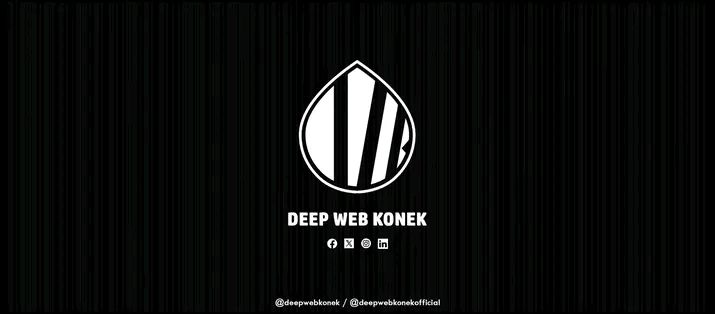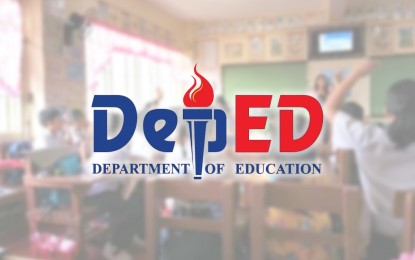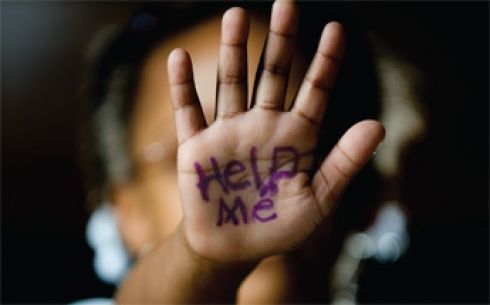“Akala Ko Trend Lang ’Yon”: Mother Discovers 14-Year-Old Son Unknowingly Sharing Exploitative Material on Twitter
“It looked like harmless fun. Just memes and jokes,” said Lara (not her real name), a single mother from Laguna. But what she found on her son’s phone would later haunt her: her 14-year-old boy had been creating and posting material that no child should ever be involved in.
At first, it seemed like typical teenage behavior. Kiel had been spending more time online, scrolling through social media, laughing at trends, and using hashtags that looked like inside jokes. But behind those posts was something far more dangerous—a hidden online culture where children are pushed to share personal, private, and sometimes highly inappropriate content under the illusion of popularity and attention.
One of Kiel’s posts included a heavily cropped photo of himself, tagged with vague phrases and unfamiliar codes. The image didn’t seem explicit at first glance—but paired with the responses and the types of messages he received, it became clear that adults were watching, reacting, and encouraging him.
Lara didn’t know how bad it was until she checked his inbox. “Some of the messages were just comments, but others were asking him to post more. They were using words that made me feel sick. My child was being pulled into something I didn’t even know existed.”
What makes the situation more alarming is that Kiel was unknowingly producing harmful material himself—content that could be considered illegal, not just dangerous. And he wasn’t being forced. He thought it was just a trend. A joke. A way to feel seen.
“He’s only 14. He doesn’t even understand what he’s done,” Lara said, visibly shaken. “But that won’t protect him from what happens next if someone saves those images or shares them somewhere else.”
She has since deleted his accounts, reported the messages, and sought professional help. But the fear remains—how much of her son's content had already been downloaded, reposted, or passed around? Would it ever fully disappear?
The story of Kiel is not unique and it is only one of many cases that underscore the findings of a recent investigation conducted by Deep Web Konek (DWK), which exposed a deeply disturbing surge in sexually suggestive content within Filipino-affiliated communities on X.”
Hir story is tragically just one of many.
Following our presentation at the April 2025 Senate hearing on online exploitation, Deep Web Konek (DWK) has intensified monitoring across online platforms where we suspect harmful digital behavior involving Filipino youth is accelerating. From May to July 2025, we recorded over 5,200 public tweets, the majority of which involve self-recorded or self-shared explicit content, often by minors or those appearing to be underage.
While predator-driven exploitation remains a serious concern, our findings point to an alarming cultural shift: young users are increasingly generating and uploading their own sensitive content — often for online attention, peer recognition, digital rewards, or e-wallet incentives.
Our monitoring began immediately after the April Senate hearing, where we presented findings on how AI and photo-editing tools are being misused to undress or manipulate minors' images. In response, we expanded our digital watch by applying open-source intelligence (OSINT) techniques across platforms such as X (formerly Twitter), Telegram, Snapchat, TikTok, Discord, and smaller forums. We observed public tweets, hashtags, keyword behavior, and interaction patterns that were easily visible to any online user.
From May to July 2025, DWK monitored 5,238 tweets, of which at least 3,421 (65%) contained self-produced content or content inferred to be shared by youth. These included posts offering links, trading clips, or asking for “samples.” We found that many users employ coded language to avoid detection by platform filters. Common slangs include:
https://iili.io/F6DG4hQ.png
• "VJ” – short for vidjak*l, used to reference solo self-recorded videos.
• "White shampoo” –reference to what we called semen.
• “T*rub” – a censored version of a Filipino vulgar word referring to male genitalia.
These were often embedded in filenames, emojis, or disguised within innocent-sounding hashtags like #FYP, #studytrade, #legitVJ, making harmful content appear normal and harder to flag.
https://iili.io/F6DGiCB.png
What’s even more disturbing is that most of the flagged content appears self-initiated by users. Phrases like “study trade,” “VJ legit,” and “send via TG” were commonly found in bios and captions, along with payment handles like GCash or Maya. Some users were seen tagging Telegram usernames or Snap handles to redirect viewers to private spaces for link sharing.
We flagged over 250 unique accounts, of which 60+ openly implied they were minors or students through profile descriptions or hashtags like #SHSgirl or #juniorhigh. Peak activity occurred in June 2025, where over 1,400 concerning tweets were posted — especially between 1:00 AM to 4:00 AM, when moderation teams are less active.
This is no longer isolated behavior. Our team observed patterns where multiple accounts liked, reposted, or replied to tweets in coordinated fashion — often using slangs like “may t*rub ka?” or “pashare ng white shampoo.” This suggests an active culture of peer-to-peer sharing, normalized among youth, that can easily lead to grooming or exposure to criminal networks.
Even more concerning, many users no longer rely on large Telegram groups. Instead, they operate in small, encrypted clusters — using codewords and creative emoji strings that make detection difficult without context or cultural knowledge.
The primary language of the flagged tweets was Taglish — a combination of Tagalog and English — which not only reflects local digital culture but also makes the content accessible to foreign viewers. In some instances, we observed offers involving foreign gift cards, cryptocurrency wallet links, or exchanges with accounts based outside the Philippines.
As we mentioned earlier, Lara shared how her 14-year-old son Kiel was unknowingly approached online through a trending hashtag. He was offered ₱200 in exchange for a photo that looked like part of a “study” or “school vibe” trend. Thinking it was just for fun and part of an online joke, Kiel agreed. But within days, strangers began asking for more—and the requests became increasingly concerning. This kind of subtle, digital manipulation—where young teens are drawn in with small rewards and made to feel like it’s all harmless—is exactly the quiet form of exploitation that many don’t realize is happening until it’s too late.
We firmly believes that this growing trend of youth self-exploitation is not receiving the urgent attention it deserves. Platforms are slow to respond, filters are being bypassed through slang and emoji obfuscation, and youth are operating in digital environments without adult guidance.
We call on tech companies, schools, parents, and government agencies to work together — not just to remove content, but to prevent it. Prevention starts with understanding. Knowing what terms like “VJ,” “white shampoo,” or “t*rub” mean is the first step in identifying if a child is at risk or already engaged in dangerous behavior.
Let us be clear: these are not random acts. This is a cultural shift — and unless confronted together, it will continue to put vulnerable youth at risk.
📊 DWK Data Summary (May–July 2025)
🧵 Total Public Tweets Monitored: 5,238
📹 Self-Produced / Risky Youth Content: 3,421
🔐 Posts Suggesting Peer-to-Peer “Trade” Behavior: 1,877
📁 Tweets Linking to Encrypted Apps or Drives: 987
🗣️ Posts Using Coded Language (VJ, white shampoo, t*rub): 3,923
👤 Unique Accounts Flagged: 257
🧒 Accounts Implying Minor Status: 63
📈 Highest Posting Spike: June 2025, with 1,421 flagged tweets
⏰ Peak Posting Time: 1:00 AM – 4:00 AM
This report is prepared and released by Deep Web Konek (DWK)
For inquiries, collaboration, or data access requests: deepwebkonek@proton.me.









